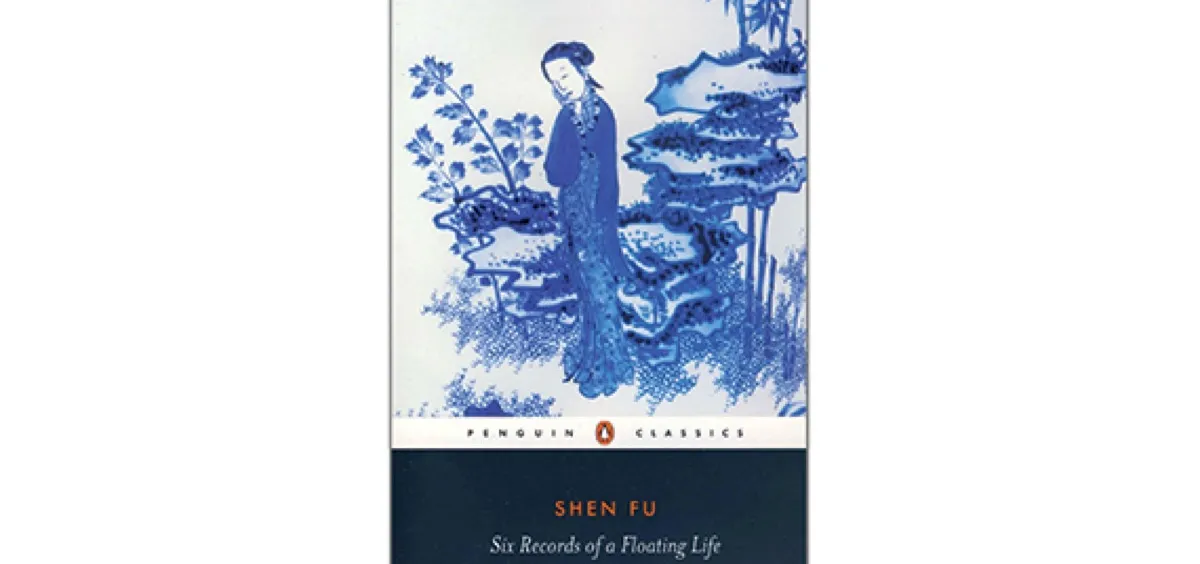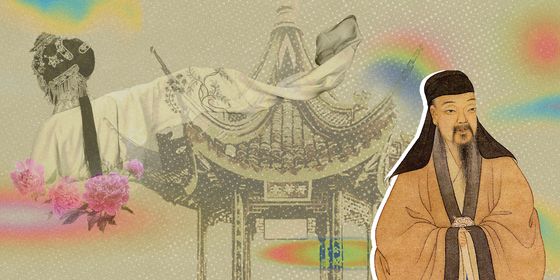A pioneering puzzle of early 19th century Chinese literature
There are few greater curios in classic Chinese literature than Shen Fu (沈复)’s Six Records of a Floating Life (《浮生六记》 Fú Shēng Liù Jì), a remarkable book that gently refuses to inhabit any particular genre, instead veering from memoir to gardening manual, to eulogy, to travelogue, through to Qing Dynasty (1616-1911) social document, but it is perhaps best thought of as a moving, even mystical, love story.
Cryptic from the outset, the text poses questions before it even begins. The titular six records in question, which serve as an autobiography of Shen Fu, an unsuccessful private secretary working in a yamen (the office of a public official), are in fact merely four records—parts five and six having never been discovered (faked versions published in the 1930s only served to further confuse the reading public). Add to this that although Shen wrote the book sometime around 1808 to 1811, it was not published until 1887, after the manuscript was discovered in a second-hand Suzhou (Shen’s birthplace) bookshop, and we are left with a very enigmatic work indeed. It is unclear if Shen thought the manuscript would be published (or if he even finished it) but there is little doubt, as a would-be scholar himself, that he would have been pleased with the reams of scholarly musings it has since produced—which is just as well, as almost nothing is known about his life beyond the book.
Six Records stands as an episodic and thematic, though non-chronological, account of Shen’s life, each of the records approaching his life from a differing angle and varying time. The Penguin Classic version (published 1983) translated by Leonard Pratt and Chiang Su-Hui lists the records as: The Joys of the Wedding Chamber, The Pleasure of Leisure, The Sorrows of Misfortune, The Delights of Roaming Afar, History of Life at Chungshan, and The Way of Living—the final two parts missing, as previously mentioned. The book’s unusual structure is such that the records overlap, and key events are later retold from a changed standing point. This layering effect adds intrigue; major plot points are suddenly parachuted in from nowhere, with seemingly innocent events given an almost sinister gloss many pages later. Thus the reader never quite knows where he is with Shen.
A further puzzle is just how reliable a narrator Shen is; as with any autobiographical work, issues with ego, memory, and motivation all come into play. Shen certainly doesn’t try to paint himself as particularly successful or a good family man (quite the opposite), nor does he seem to be asking for our sympathy. However, major events in Shen’s life are often foreshadowed by the appearance of classical Chinese works of literature echoed later in the book. Shen’s use of such a literary technique makes it clear not everything can be taken at face value. On the books first page Shen writes, “Unfortunately I never completed my studies, so my writing is not very skilful…Criticism of my writing will be like the shining of a bright light into a dirty mirror.” But Shen is surely being modest; the fact the book still endures amongst both scholars and wider readers, some 200 years after it was written, attests to the fact that it is the work itself that is the bright light—it stands as one of the most original and outré pieces of writing in Chinese history.
Often cited as one of the most revealing documents to outline private life in the Qing Dynasty, even here the book poses a challenge as Shen Fu and his wife (and cousin) Chen Yun are both deeply idiosyncratic, wildly unrepresentative of the times, and would have been looked upon almost as outcasts by many; on more than one occasion they were more-or-less disowned by their family. Additionally, Shen wrote in a deeply confessional style that is almost unseen in classical Chinese literature. There is almost nowhere Shen won’t go, as he offers forthright insight: the courting of his wife, pawning clothes to fund drinking binges, breaking the hearts of prostitutes, his blasé attitude to employment, right down to the details of his very particular and preferred methods of flower arranging. Shen even gives the relatively racy details of consummating his marriage:
“I playfully felt her breast and asked her if her heart was beating as fast as mine. I pulled her to me and whispered in her ear, ‘Why is your heart beating so fast?’ She answered with a bewitching smile that made me feel a love so endless it shook my soul. I held her close as I parted the curtains and led her into bed.”
While not winning any awards in the soft-core porn stakes of today, for a Chinese autobiography some two centuries old it is shockingly risqué, yet Shen thinks little of it. And it is no surprise; in today’s language Shen would probably be called bohemian, perhaps even a libertine; by Confucian standards his was an open life, living hand to mouth, doing pretty much as he pleased without overthinking the consequences. This meant that while for periods of his life he had money—which he was very generous with, usually spending it on boozing with friends—at other times he was near-destitute and frequently had to borrow from acquaintances to survive.
“Shen Fu’s Floating Life” is a review from our latest issue, “Law”. To continue reading, become a subscriber and receive the full magazine. Alternatively, you can purchase the digital version from the iTunes Store or Google Play Store.












